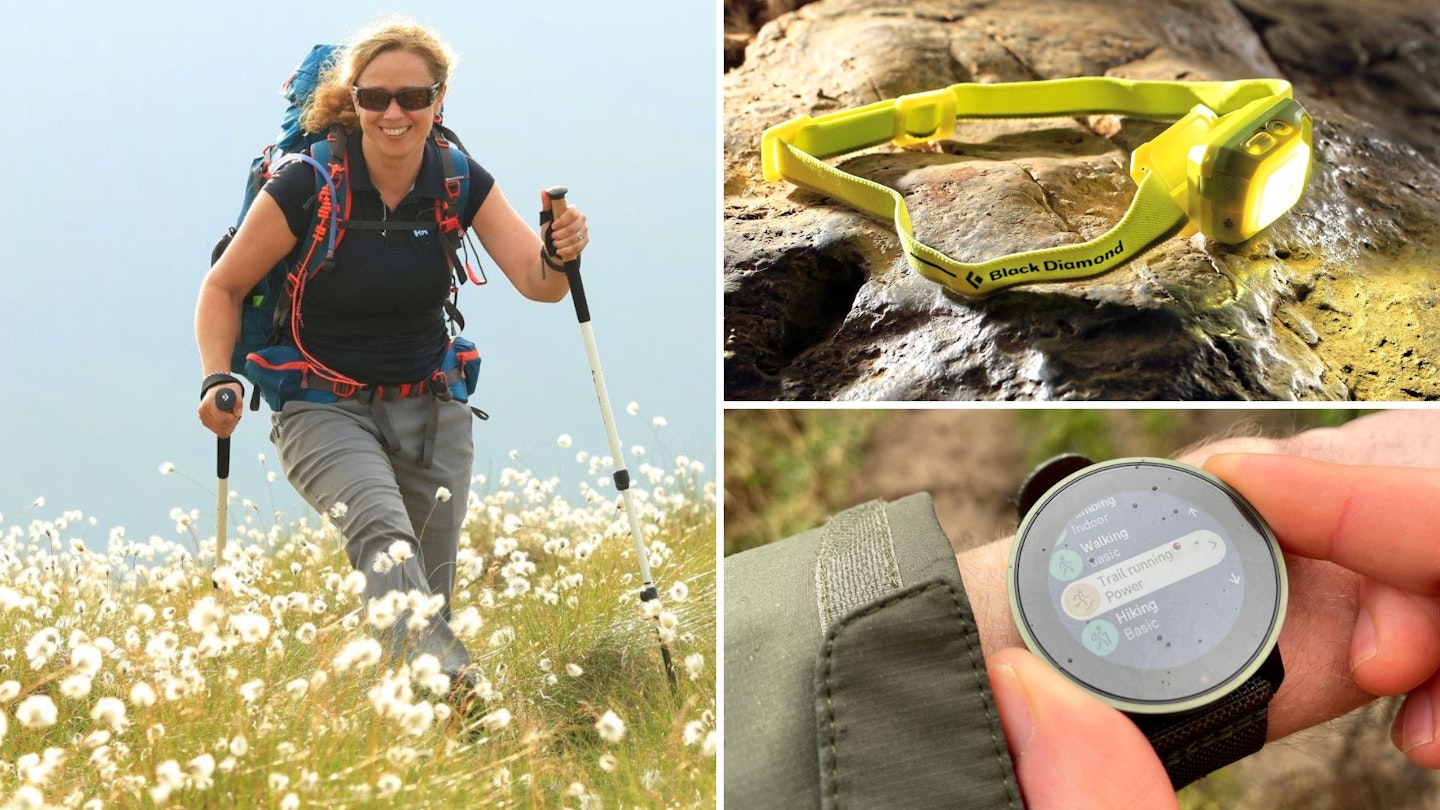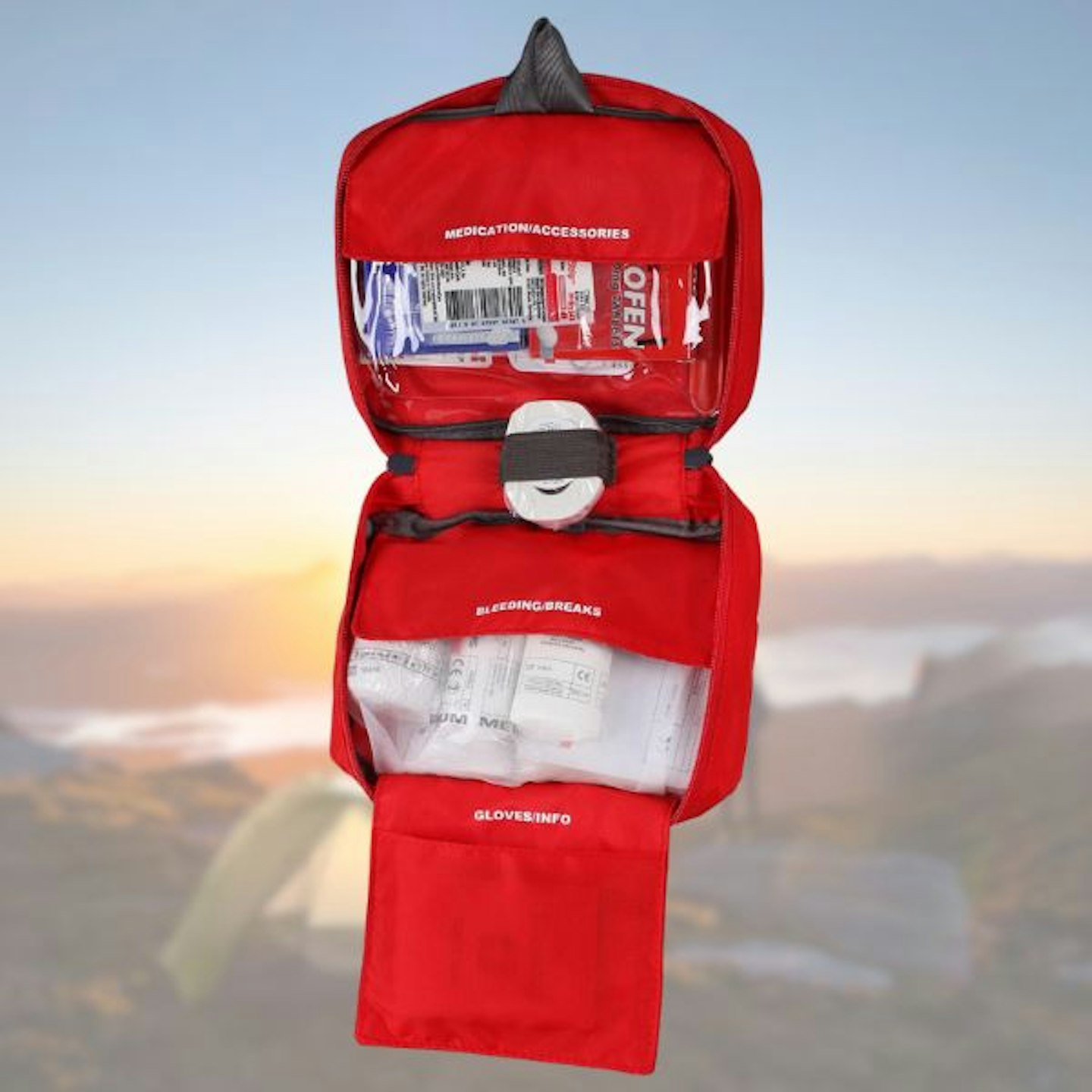Outdoor hardware and walking accessories have proliferated beyond head torches and compasses. Sometimes that's for the better, sometimes for the worse. For the better because the useful items help keep us safe and our outings more enjoyable. For the worse because there are a lot of gimmicks and garbage out there.
The fundamental essentials for hiking haven't changed. They might have evolved and been refined over the years, but a compass, for example, is still a compass. No fancy outdoor smartwatch has replaced it yet. Some items, such as trekking poles, have become very popular in the last 20 to 30 years. Others, like high-SPF sunscreen, have become a must for hikers.
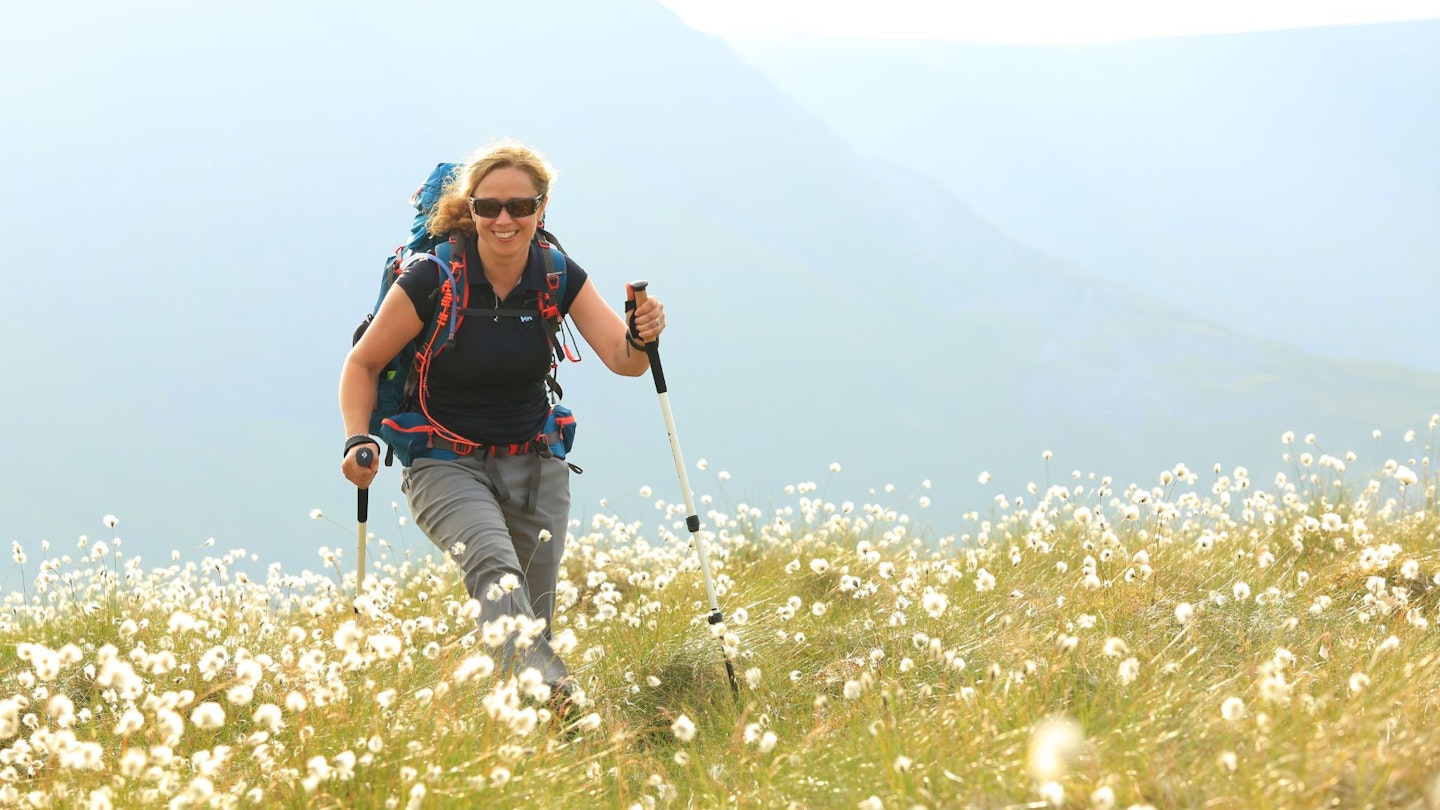
The best walking accessories at a glance:
Best head torch: Petzl Swift RL
Best first aid kit for hiking: Lifesystems Explorer First Aid Kit
Best basic compass: Silva Starter 1-2-3
Best sunscreen for hiking: Lifesystems Mountain Sun Cream SPF50+
Given the absurdly broad category of walking accessories, in this article, we're looking at the key items you need beyond footwear, clothing, backpack, and sustenance, plus some useful but non-essential additions.
Best walking accessories in detail:
Best head torch
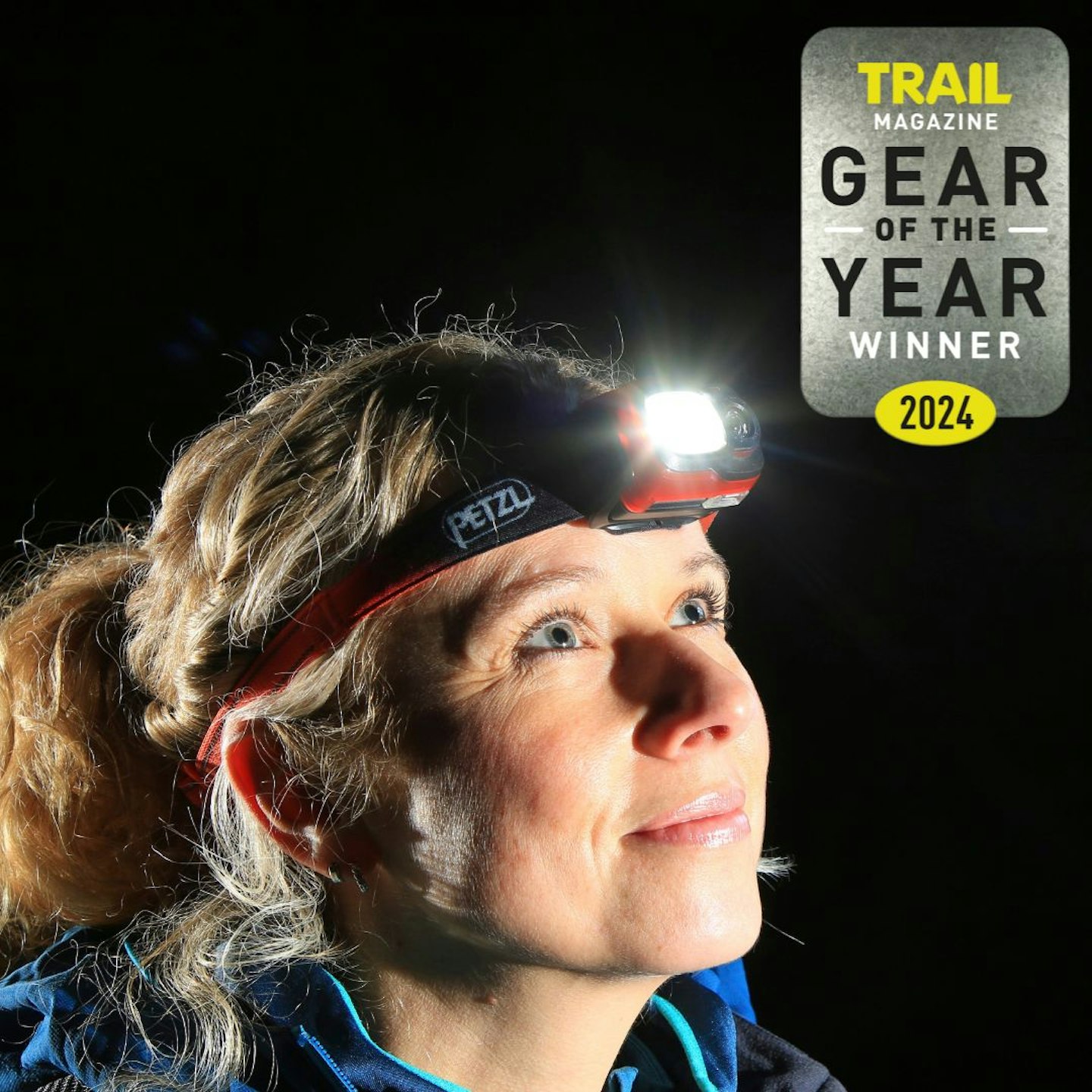 LFTO
LFTOwww.decathlon.co.uk
We've long been fans of the Petzl Swift RL head torch and in its latest overhaul, it's better than ever.
It's even more powerful, which is always nice, up from 900 lumens to 1100. Petzl also improved the lamp lock feature, which used to be operated by a switch that we found could flick back when bumping around in a backpack. The new version is activated by holding the button down, indeed all the features are controlled by one button and is super easy to use.
The Swift RL features Reactive Lighting (hence the 'RL' bit), which automatically adjusts the brightness depending on the proximity of the objects you're illuminating.
It's a lightweight head torch too, weighing just 100g and having a very comfortable headband. It's powered by rechargeable 2350mAh battery.
Read our full Petzl Swift RL review
Pros
- Powerful
- Smart, ergonomic features
- Very comfortable to wear
- Rechargeable battery included
- USB-C charging
- Lightweight
Cons
- Perhaps overkill for some
| Max power: | 1100 lumens |
| Max burn time: | 100 hours at 10 lumens |
| Max beam distance: | 155m |
| Batteries: | USB-C rechargeable 2350mAh lithium-ion battery |
| Weight: | 102g |
| Ingress protection rating: | IPX4 |
2.
Alpkit Qark
Best value head torch
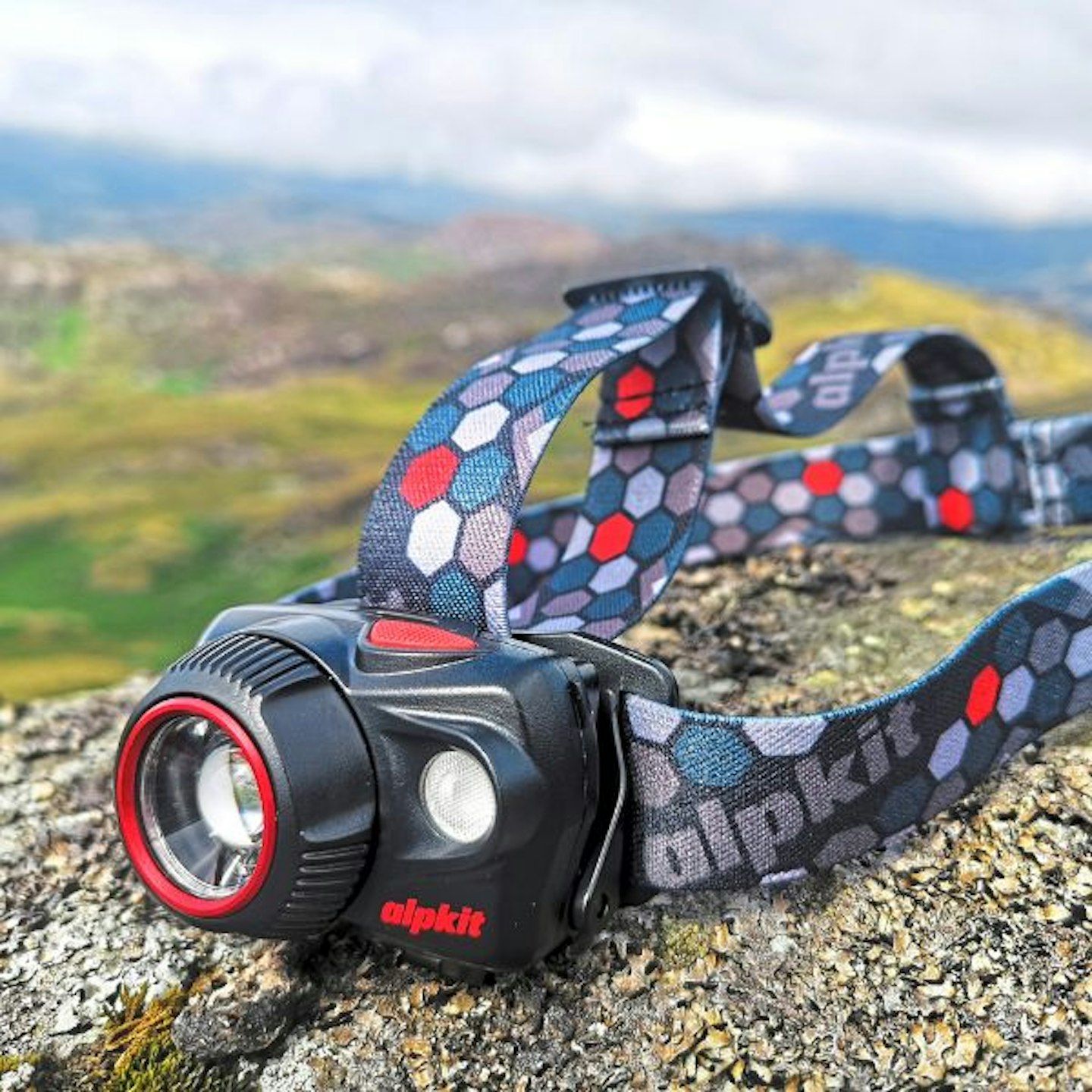 Live For The Outdoors
Live For The Outdoorsalpkit.com
Addressing the question of expense is Alpkit's Qark head torch. It's simple, comfortable, and dependable. However, it doesn't have a particularly long run time.
Being a hybrid head torch powered either by a USB-rechargeable battery or AAAs, it's immediately versatile. A single button on top is your power and mode button, and there is a rotating bezel on the light to adjust the beam.
It has a good IP rating – IPX6 – but doesn't feel super tough. So it'll be fine in the rain but try not to headbutt anything while wearing it.
Pros
- Good value
- Lightweight
- Comfortable
- Hybrid
Cons
- Not as tough as some
- No battery level indicator
Best first aid kit for hiking
First aid kit contents vary depending on the activity and how many people they're for.
The Lifesystems Explorer kit is a pretty comprehensive kit for dealing with a wide range of injuries. It's about the size of a small book, but if you're wanting something even more compact, the D of E-recommended Lifesystems Trek personal first aid kit is a great option.
Pros
- Comprehensive list of contents
- High-quality first aid kit
- Nicely organised
Cons
- More compact kits available
Best emergency blanket
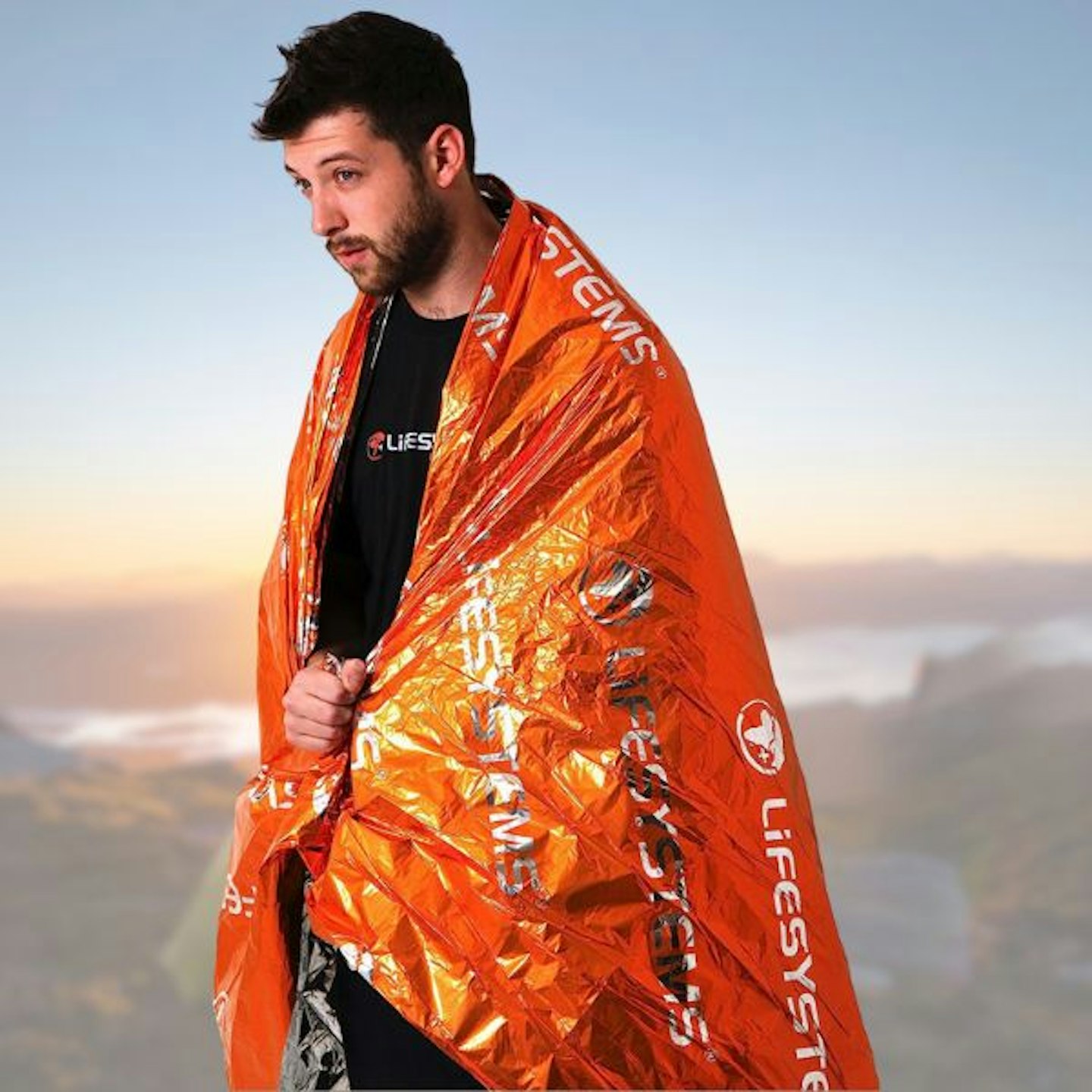
Some of the most essential hiking accessories are also the smallest and least expensive, such as an emergency blanket.
The Lifesystems emergency blanket is made from metalised polyester. It's radar reflective and reflects 90% of radiated body heat too. It's weatherproof and is a decent size, measuring 140cm by 210cm.
Pros
- Generous size
- Can be used for signalling
- Great value
Cons
- None - ideal emergency blanket
Best basic compass
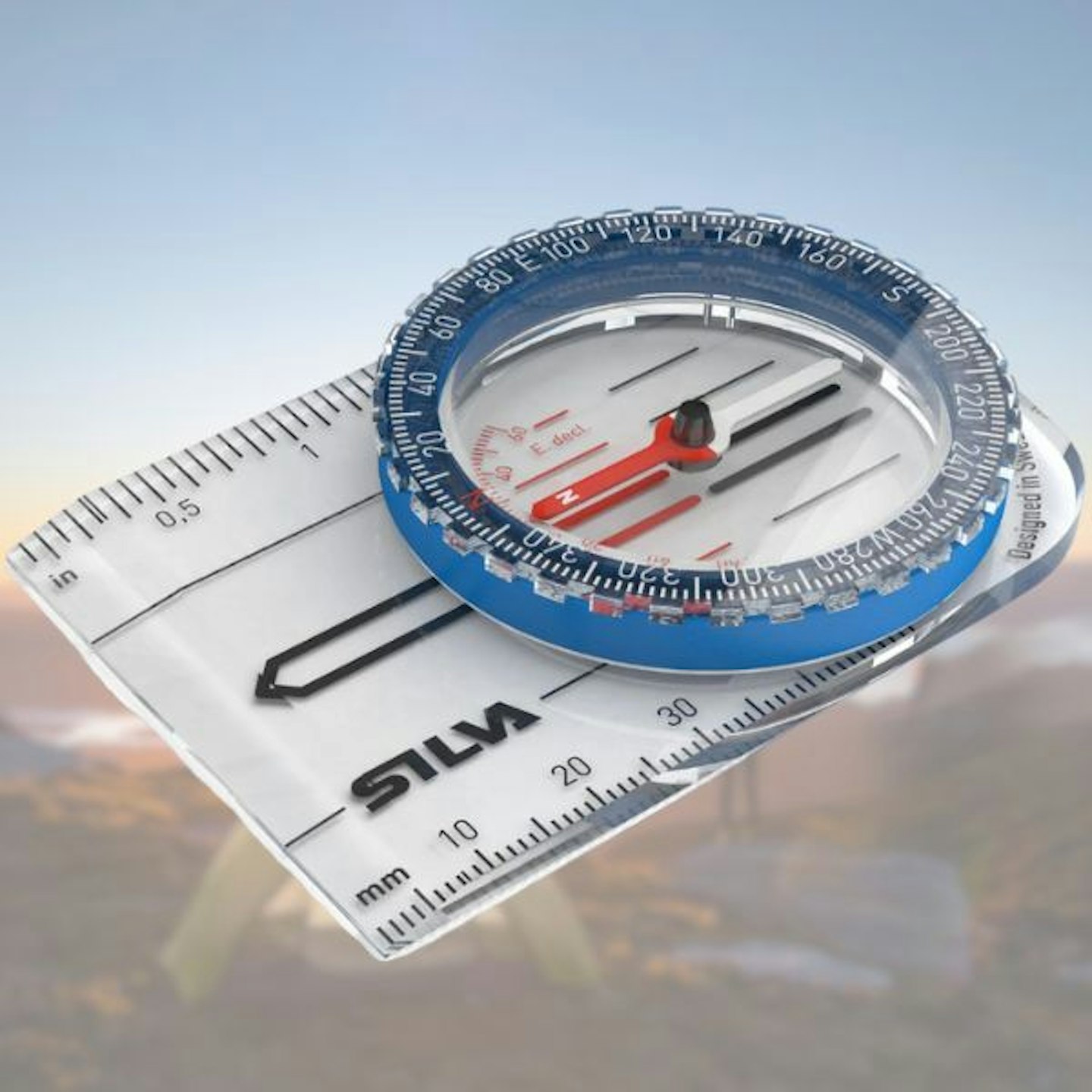
Basic knowledge of map reading and navigation is an absolute essential for hiking and trekking in remote places. A standard compass is more important than your GPS watch or smartphone navigation app because it's more accurate and is not reliant on batteries.
Silva's basic compass is ideal for those wanting a reliable, functional compass or for beginners. It's waterproof and has a rotatable housing, scales in mm and inches, a declination scale and weighs basically nothing.
Pros
- Rotatable housing
- Waterproof
- Detachable lanyard
Cons
- No magnifier
Best water purifier
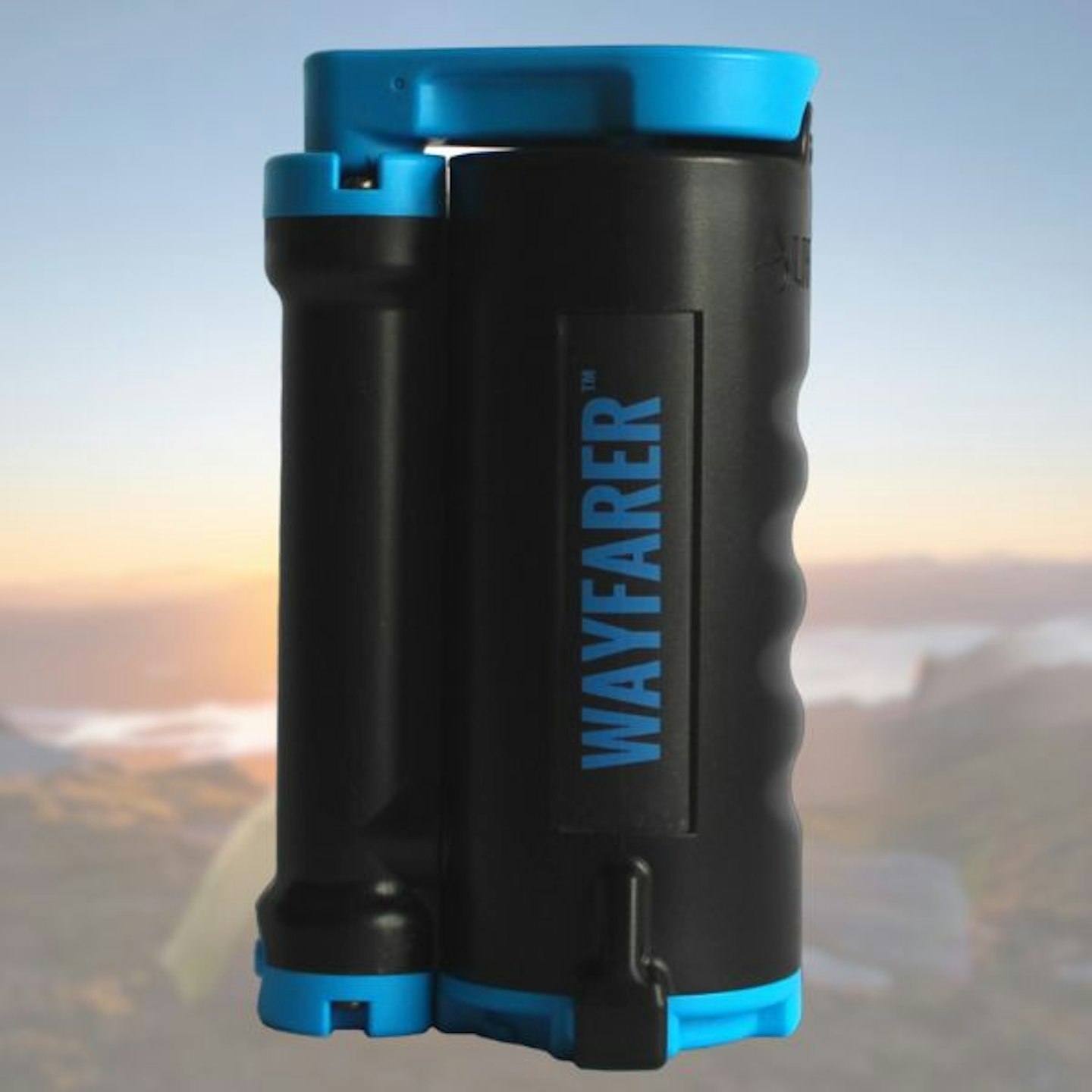
iconlifesaver.com
This pocket-sized water purifier is more effective than most options. Water filters remove cysts and bacteria, but the Wayfarer water purifier removes viruses as well.
It uses a two-stage filtration system consisting of a replaceable cartridge (filters 5,000L of water) and activated charcoal disc (replace every 100L). The former removes 99.9999% of bacteria, 99.999% of viruses, and 99.99% of cysts, and the latter reduces chemicals and heavy metals like chlorine, lead, nickel and cadmium. It also helps improve taste.
You can find more compact options, but few are as effective as the Wayfarer. It's the best option for total peace of mind wherever you are.
Pros
- Removes cysts, bacteria, viruses, and particulates
- Tough
- Also reduces chemicals and heavy metals
Cons
- Not the fastest flow rate
Best water bottle
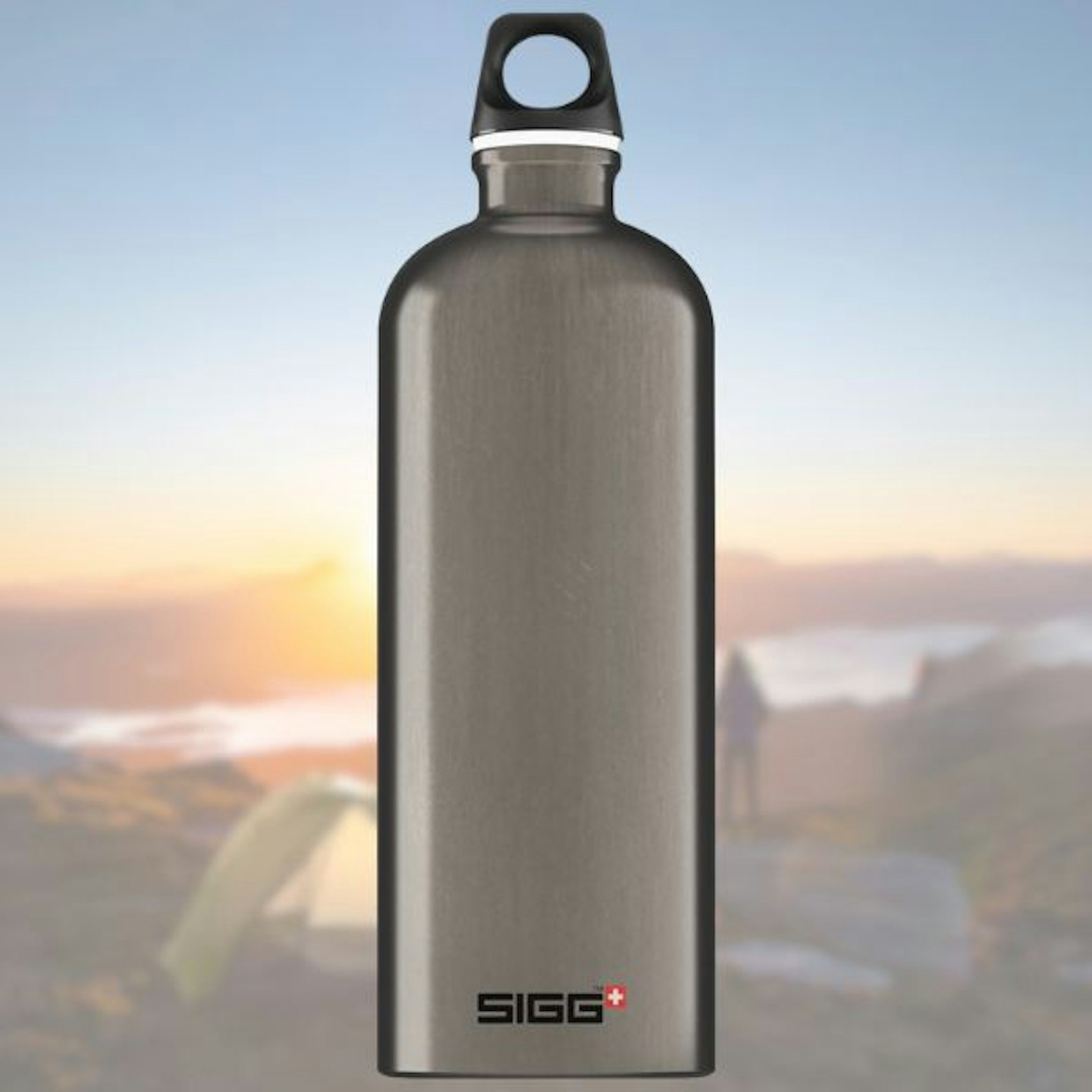
The tough metal water container is a timeless hiking classic. This option from Swiss brand SIGG is made from 100% aluminium. And because it's aluminium, it's not only tough but also one of the lightest bottles around – just 147g.
Stainless steel tends to be the material of choice for those wanting a taste-free drink bottle, but the Traveller MyPlanet has a BPA-free interior coating that is resistant to fruit acids.
Naturally, this drink bottle is leak-proof and tough. A Sigg bottle should bear the scars of its adventures with pride. When it does eventually come to the end of its life, the aluminium can be recycled again.
Pros
- Sustainable
- Tough
- Good value
- Lightweight
Cons
- Only 2 volume sizes
Best flask
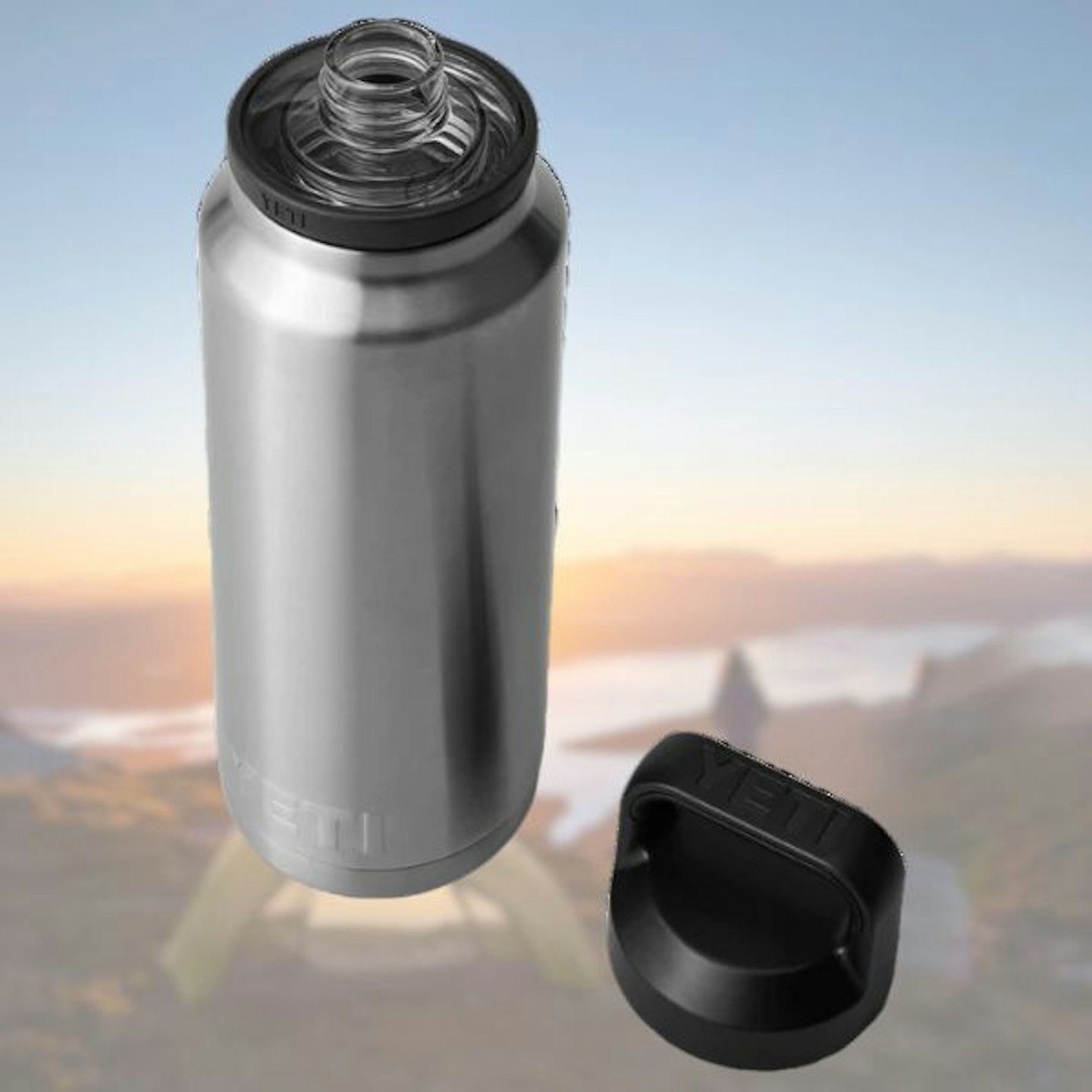
It's a heavy thing, but the YETI Rambler bottle is a magnificent insulated flask. The flip side about being a bit dense is that it's tough. The stainless steel speaks for itself, but the plastic screw top cap and spout are really solid.
The insulated Rambler comes in a wide range of colours and five different volumes, from 532ml to 1.9 litres. We've used the 1065ml (36oz) size, which is great if you have the capacity to store it, otherwise, the 760ml (26oz) is a great option.
Pros
- Several volumes available
- Suitable for hot and cold liquids
- Durable
Cons
- Heavy
Best sunscreen for hiking
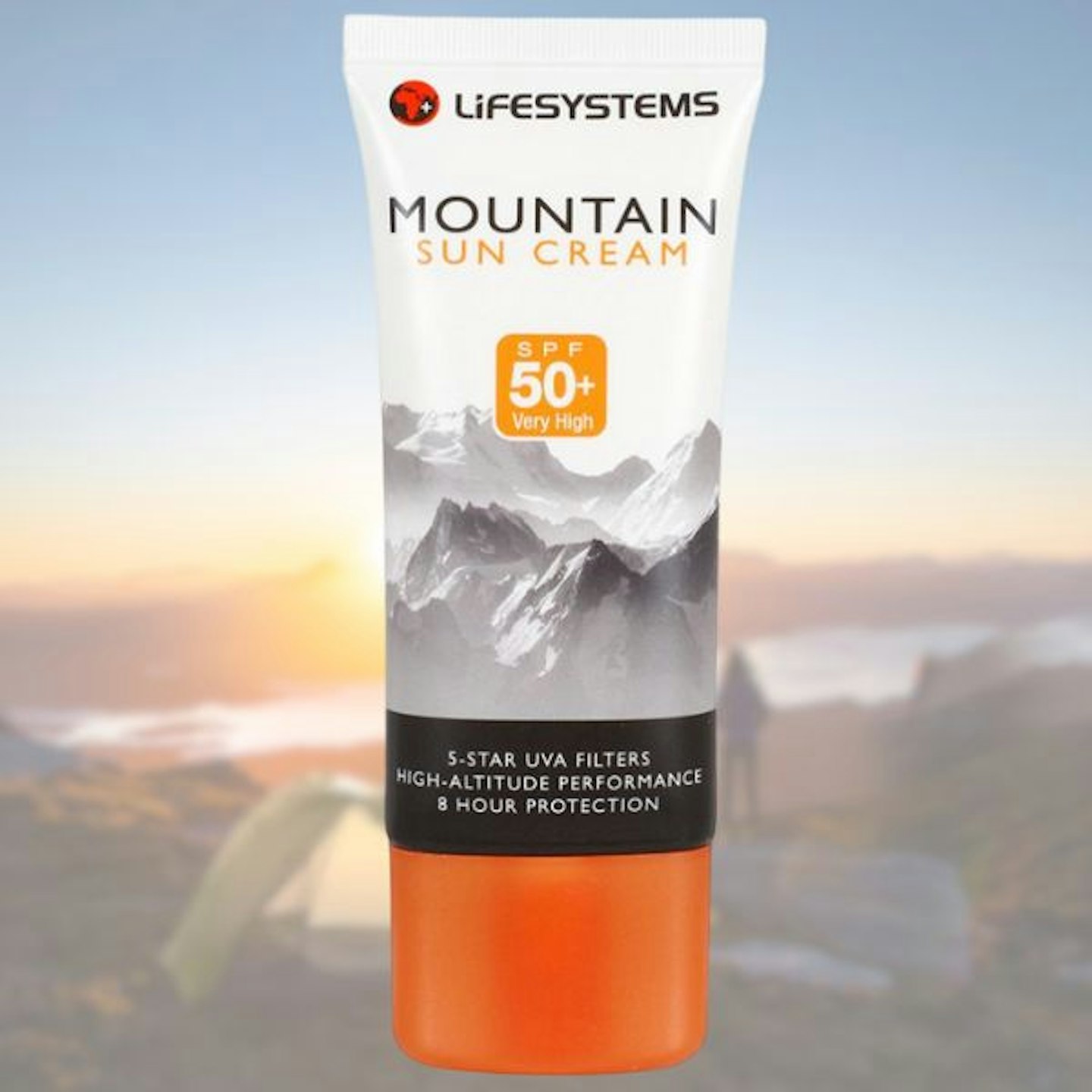
www.cotswoldoutdoor.com
There are a few things you want from your sunscreen. One of them is Broad Spectrum, which helps block both UVB and UVA rays. Another is sweat or water resistance, which is particularly applicable for sports. It's also better if sunscreen doesn't have any unnecessary additives such as parabens.
This sunscreen ticks all these boxes and is great for use at higher altitudes where UV rays are more intense.
Pros
- UVA and UVB protection
- Sweat and water resistant
- No parabens
Cons
- Small(ish) volume
Best walking poles
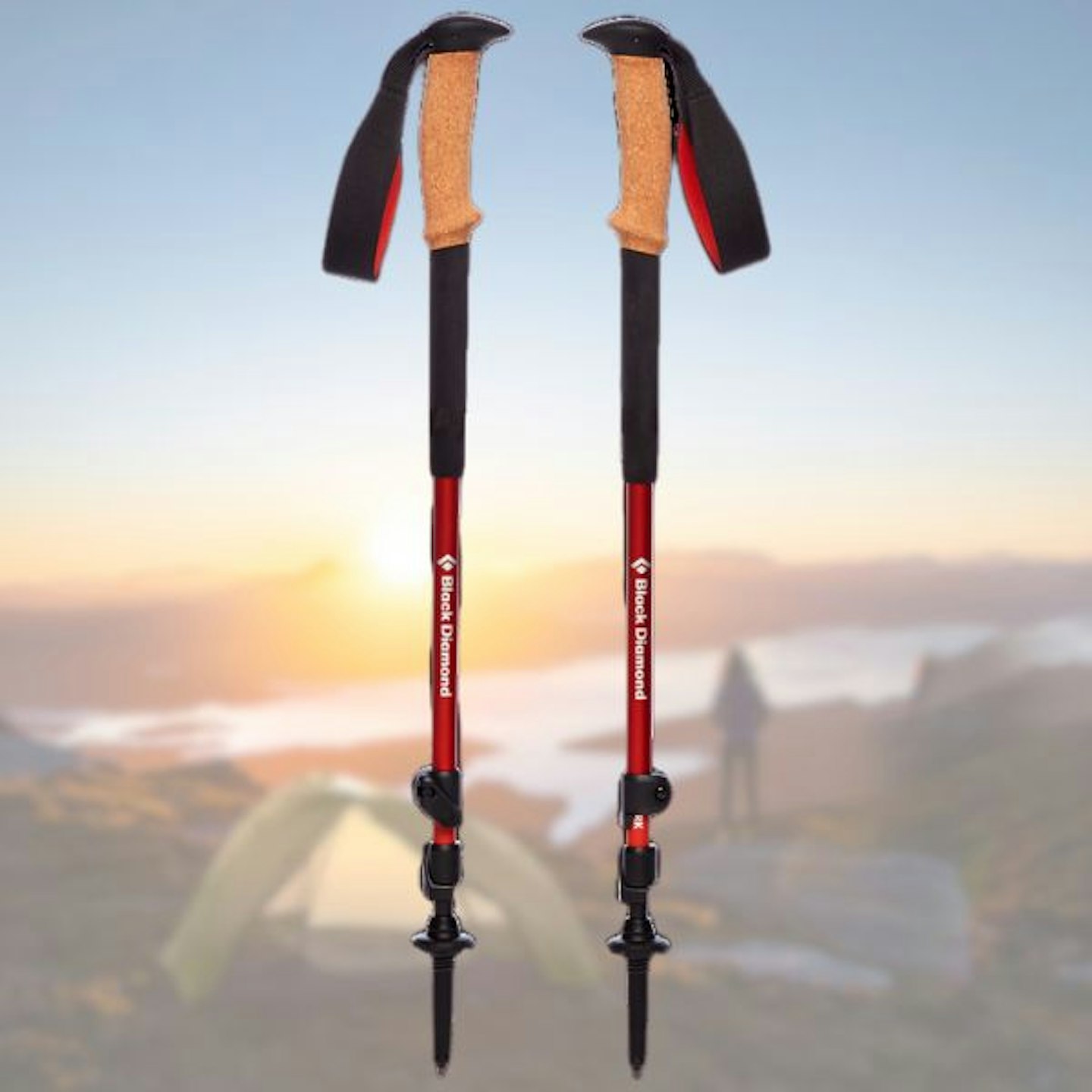
What made the Black Diamond Trail Ergo Cork stand out to us above all the rest was their durability. We weren't kind to them during testing, and they shrugged off our abuse. Better should something break, Black Diamond provides spares for most parts.
Made from aluminium with cork handles, these walking poles are not just tough but ergonomic too. Each pole weighs 243g, features flip-lock adjustment (tougher than twist lock), and extends from 62cm to 140cm (100-140cm usable length).
Pros
- Fantastic build quality
- Spares for almost all parts easily available
Cons
- There are even lighter poles out there
Best multisport smartwatch
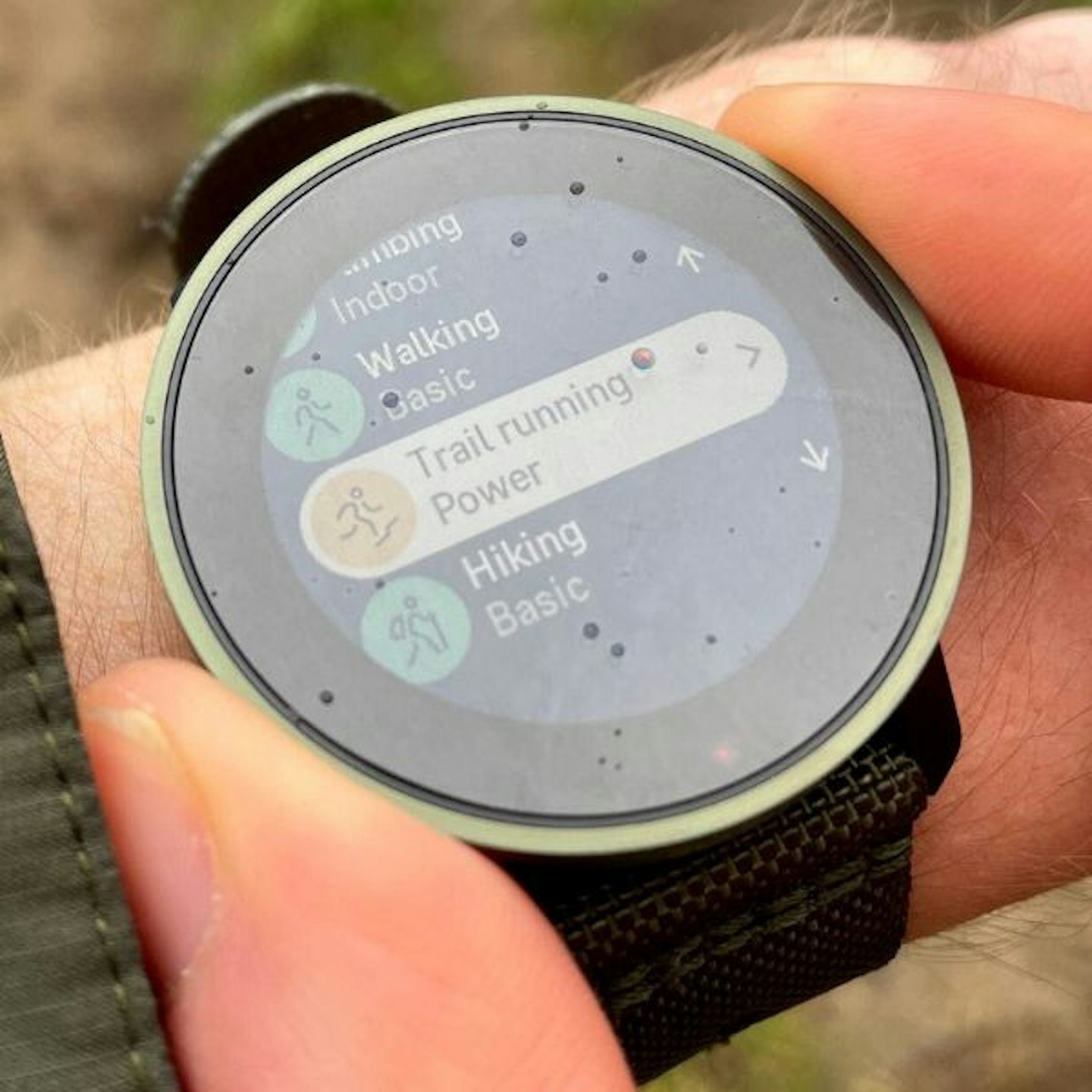 Live For The Outdoors
Live For The Outdoorswww.suunto.com
We liked the predecessor of this watch very much, but it had a couple of niggles regarding the interface. With this version, it's seen a complete revamp of the interface, and it's fantastic.
It's button and touch operated and is very intuitive. Everything is only a swipe/click or two away, and the graphics are very clear. The Suunto 9 Peak Pro doesn't look as tough as some of its rivals, but it absolutely is.
In addition to the watch itself, the Suunto app is also very simple to use and interpret. It can be a bit slow to sync with the watch but other than that, it's great. The 9 Peak Pro's battery life is fine, but there are certainly others that do better in that department. But because of its build quality, excellent interface, and easy app, it's our multisport watch of the moment.
Read our full Suunto 9 Peak Pro review
Pros
- Excellent layout
- Looks awesome
- Great app
Cons
- App is a little slow to sync
Best power bank for outdoors
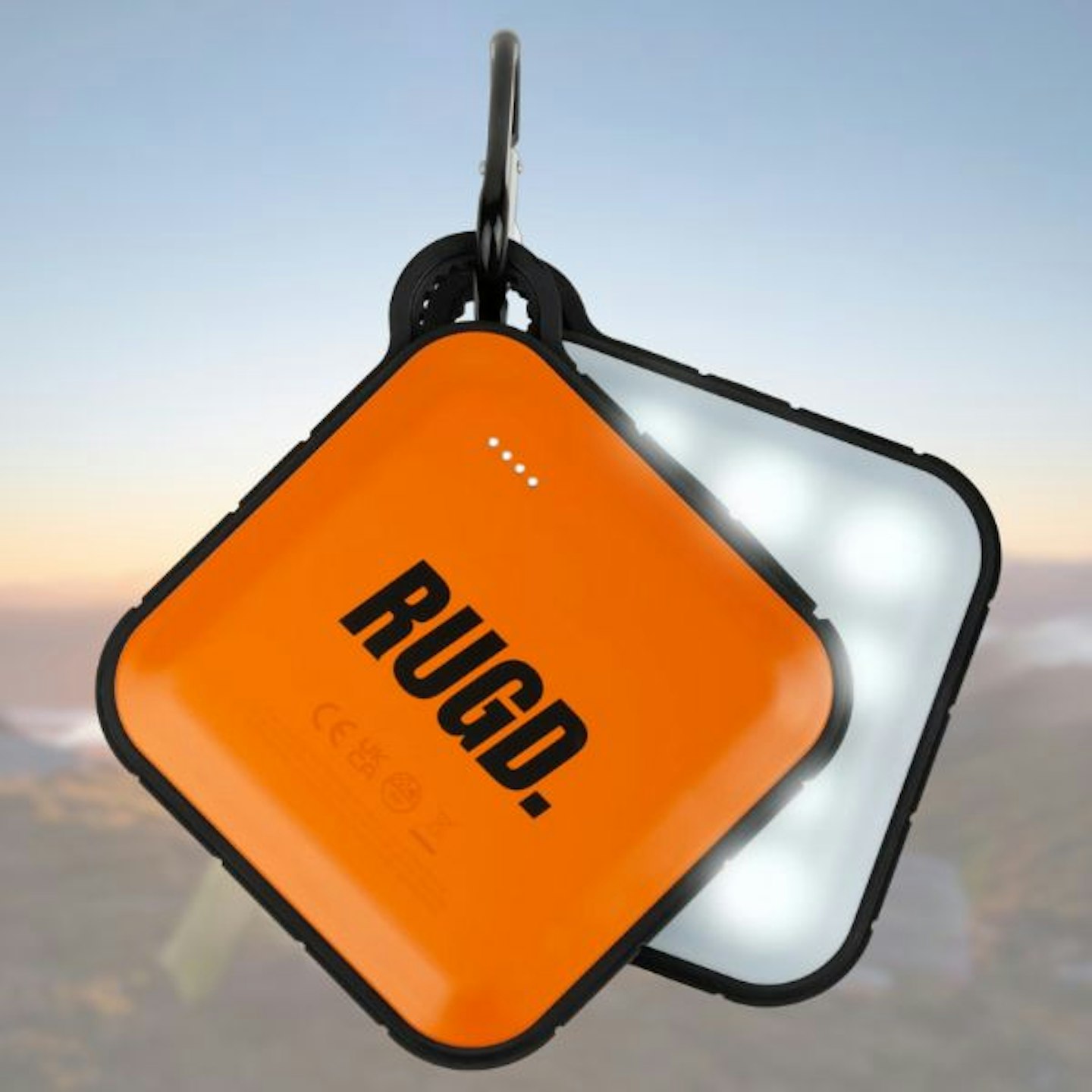
Thanks to its small size, decent capacity and, crucially, a tough outer, the Power Brick is the best power bank for use on hikes.
It's a very well-thought-out design. It has USB-A and C outputs and fast charges via USB-C. The underside has a powerful 1300-lumen lamp that can also flash SOS.
In terms of toughness, it has an IP67 rating and is 'shock-proof' too. At 280g and measuring less than 10cm wide by 3cm deep, it's compact too.
Pros
- Very tough
- Looks cool
- Useful built-in light
Cons
- Some offer better capacity for the money
Best tough phone case
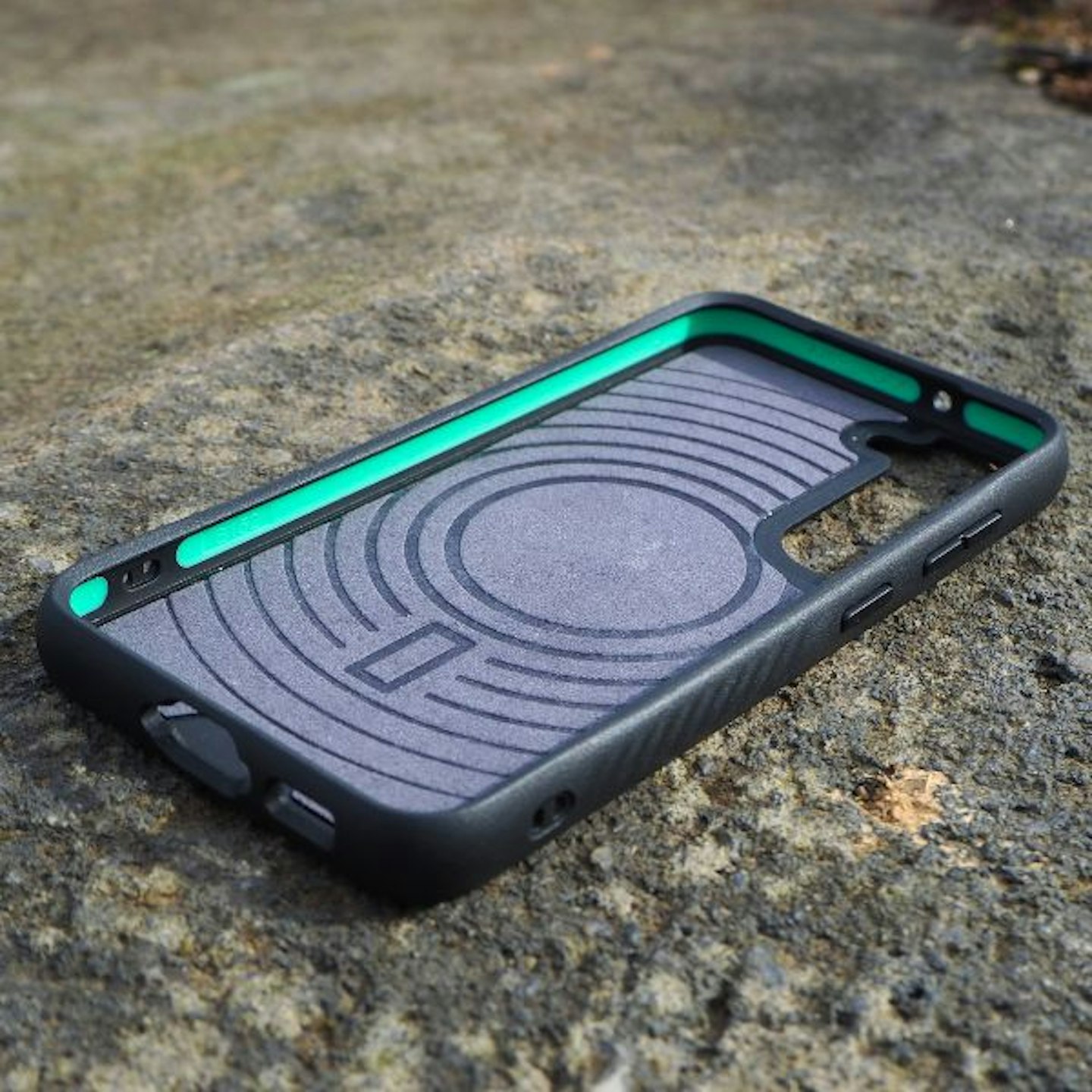 Live For The Outdoors
Live For The OutdoorsThe tough phone case food chain is quite different to the animal kingdom's because atop of it is a Mous. For several years it's been at the forefront of phone protection, and its latest incarnation of the Limitless case is quite impressive.
Like its predecessors, the Limitless 5.0 looks like a regular phone case – slim and minimalist. But within the walls of the case is Mous' impact-absorbing AiroShock. But there are other design touches that, alongside the excellent drop protection, secured this case as our number one recommendation.
First, it's MagSafe compatible, which is extremely helpful. The other is the rippled texture grip along the outside of the case, making the case much easier to grasp.
Pros
- Really impressive impact protection
- MagSafe compatible
- Still slim and minimalist
Cons
- Only available for the latest 'big 3' smartphones
Winter hiking accessories
Irrespective of whether you hike in winter for the scenery, solitude, or the sheer challenge, there are some accessories that are important additions to your inventory.
Best winter gloves
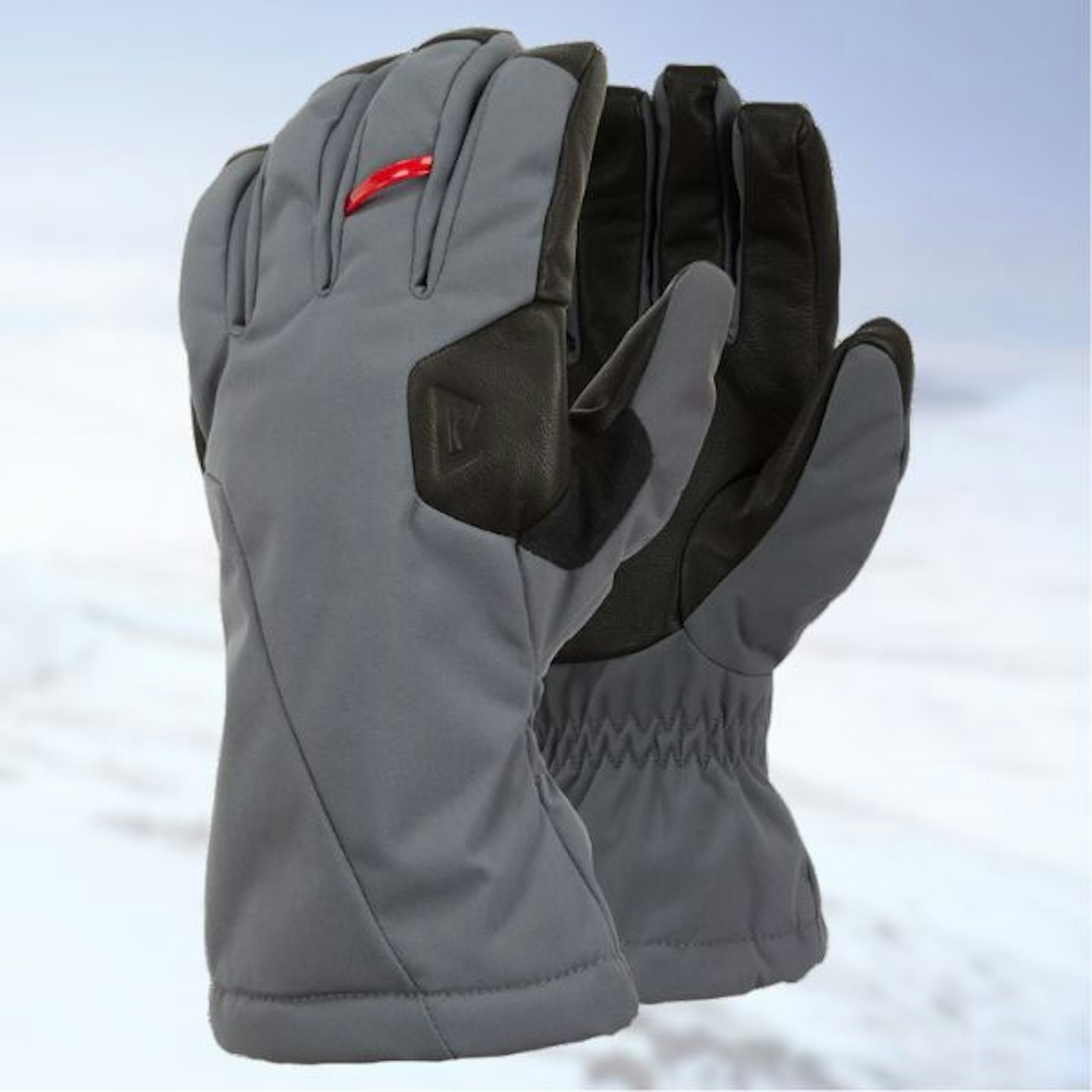
tiso.com
The Mountain Equipment Guide winter glove has been around for years but has evolved during that time. It features a Drilite waterproof membrane with a soft synthetic lining between it and your hands. So they're dry and comfy.
To help keep warmth in the glove, there is a simple drawcord around the wrist. We also like the durable leather palm and reasonably good dexterity you still have while wearing the Guide gloves. With all the features and performance, they're good value too.
Pros
- Warm
- Plenty of features
- Protective
- Good value
Cons
- Some pricier options are tougher
Best crampons
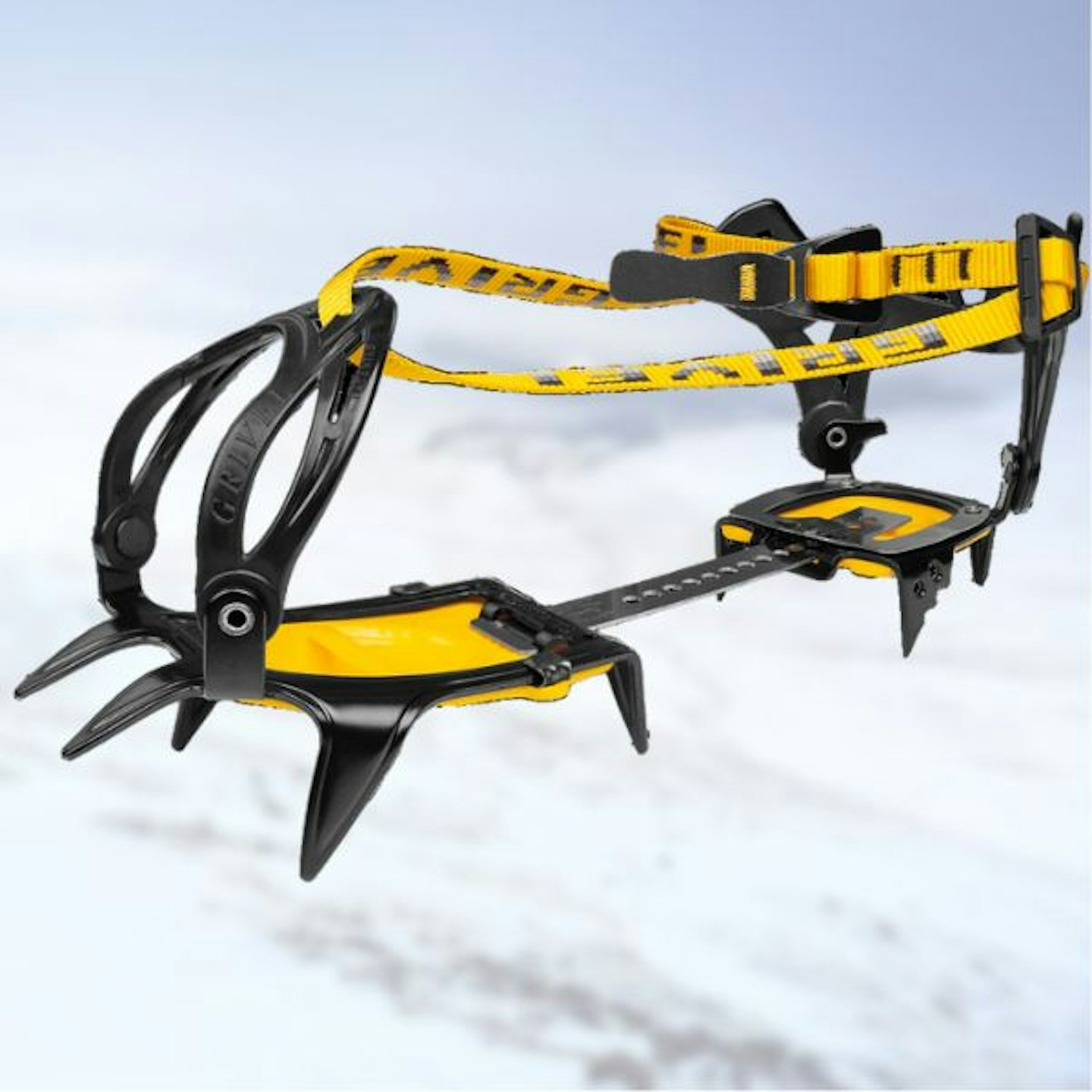
The C1-rated Grivel G10 is a robust and reliable go-to crampon for hillwalkers. It can be attached to any model of hiking boot that is stiff enough to wear it. There is also a New Matic EVO, which has a heel clip for boots with a rear crampon welt.
Pros
- Full strap and step-in versions
- Ideal for most mountain trips
- Very easy to use
Cons
- There are better options for very technical terrain
16.
Petzl Glacier
Best ice axe
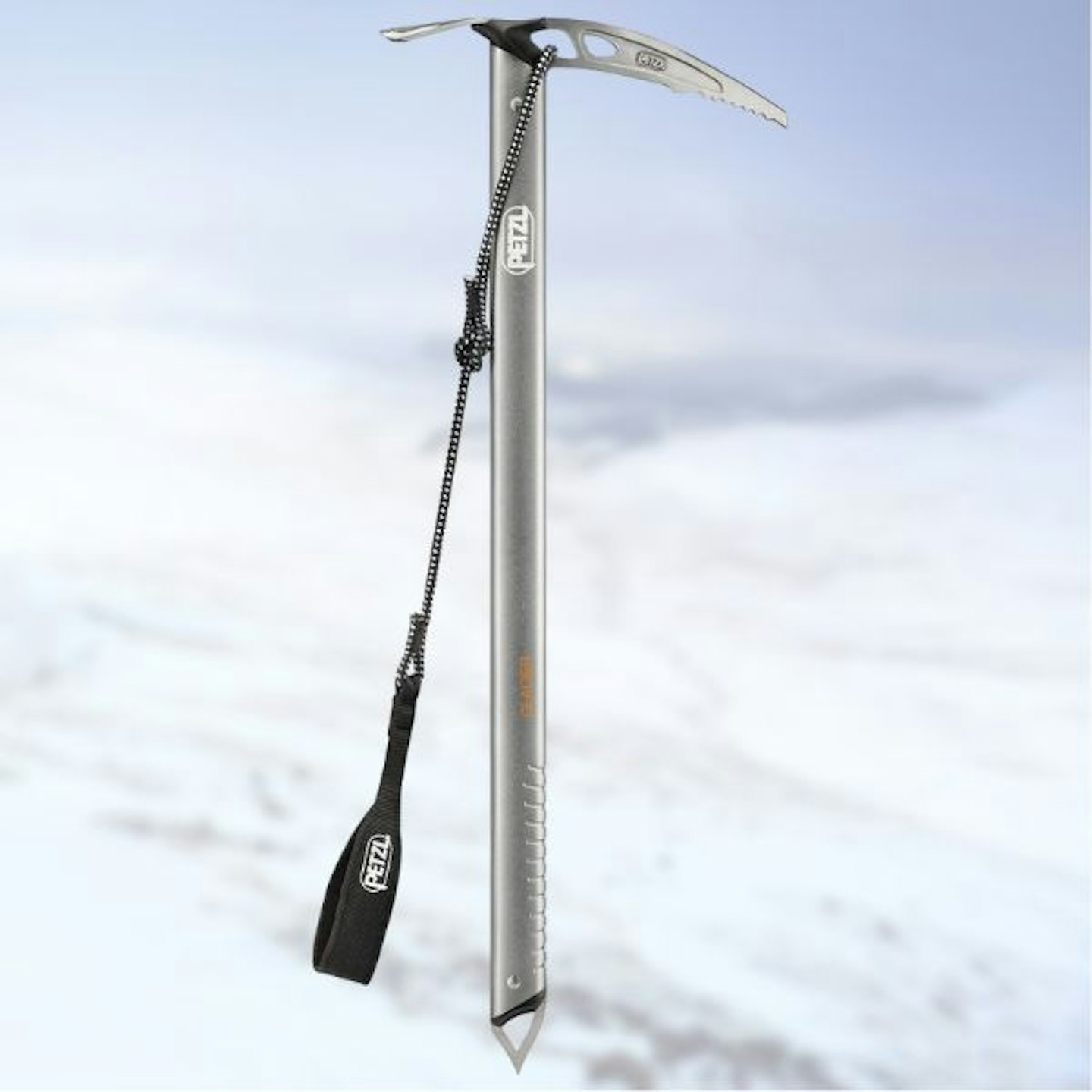
www.ellis-brigham.com
The ice axe graduates the casual hillwalker to the more advanced outdoors person. It's not something to be coy about – take a winter skills course, learn how to self-arrest and all the jazz, and it's a very useful companion for winter mountain trips.
The Petzl Glacier is comfortable, versatile, lightweight, and well-made. It's intended primarily for use in piolet mode but has the features so it's useful on steeper terrain too.
Its aluminium shaft has grooves for improving grip, and the stainless steel spike pierces hard snow easily. We also like the aggressive pick because it aids climbing steep ground better than many other ice axes.
Pros
- Comfortable in the hand
- Versatile
- Lightweight
Cons
- Too light in axe head for some users
Walking accessory buying advice
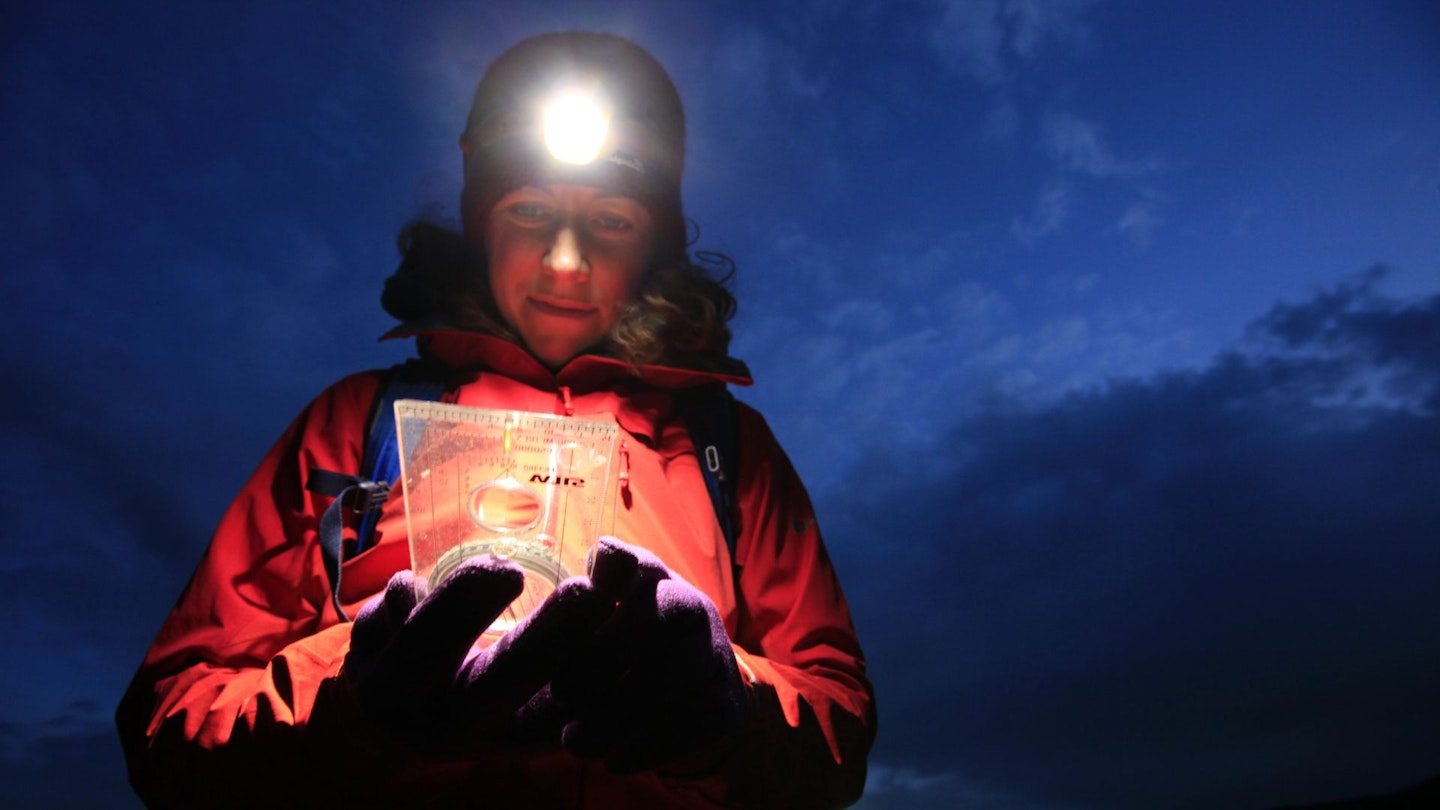
There are only a few walking accessories we class as absolutely essential. These are a head torch, compass and map, sunscreen and a first aid kit (including an emergency blanket). If you're hiking in winter, an emergency shelter, ice axe, and crampons also need to go into your rucksack.
Beyond that, everything else is optional. Important, perhaps (like trekking poles), but optional nevertheless.
How you like to hike and your budget influence what hiking accessories you take with you. There are multiple options for different types of hiking that achieve the same thing. For example, people going on fastpacking trips won't want to take a heavy stainless steel flask but a lightweight water bottle or hydration bladder instead.
Multitools are a handy accessory to carry – a lot of hiking gear lists include them. If you're doing overnight or multiday trips, they're certainly useful to take. But a multitool doesn't just mean a knife. For example, you can get sporks with bottle openers, which makes this humble piece of cutlery a multitool.
Trekking poles are incredibly popular because they aid balance and reduce strain on the body. To find out all about trekking poles, read our guide we created in partnership with LEKI.
How we test
This wide collection of products come recommended following weeks, months, sometimes years of testing by our experienced gear testers.
We love getting our hands on walking accessories, both conventional and innovative options, to always stay on top of the very best products currently on the market and to filter the accessories from the gimmicks.
Get half-price digital OS Maps. Trail and Country Walking magazine members get 50% off an annual subscription to OS Maps for 12 months. Find out more here.
Don't forget to subscribe to the Live For The Outdoors Newsletter to get expert advice and outdoor inspiration delivered to your inbox!
Chris Williams is a Digital Content Writer for Live For The Outdoors. He trained as a journalist in New Zealand and has been working on Live For The Outdoors since 2021.
